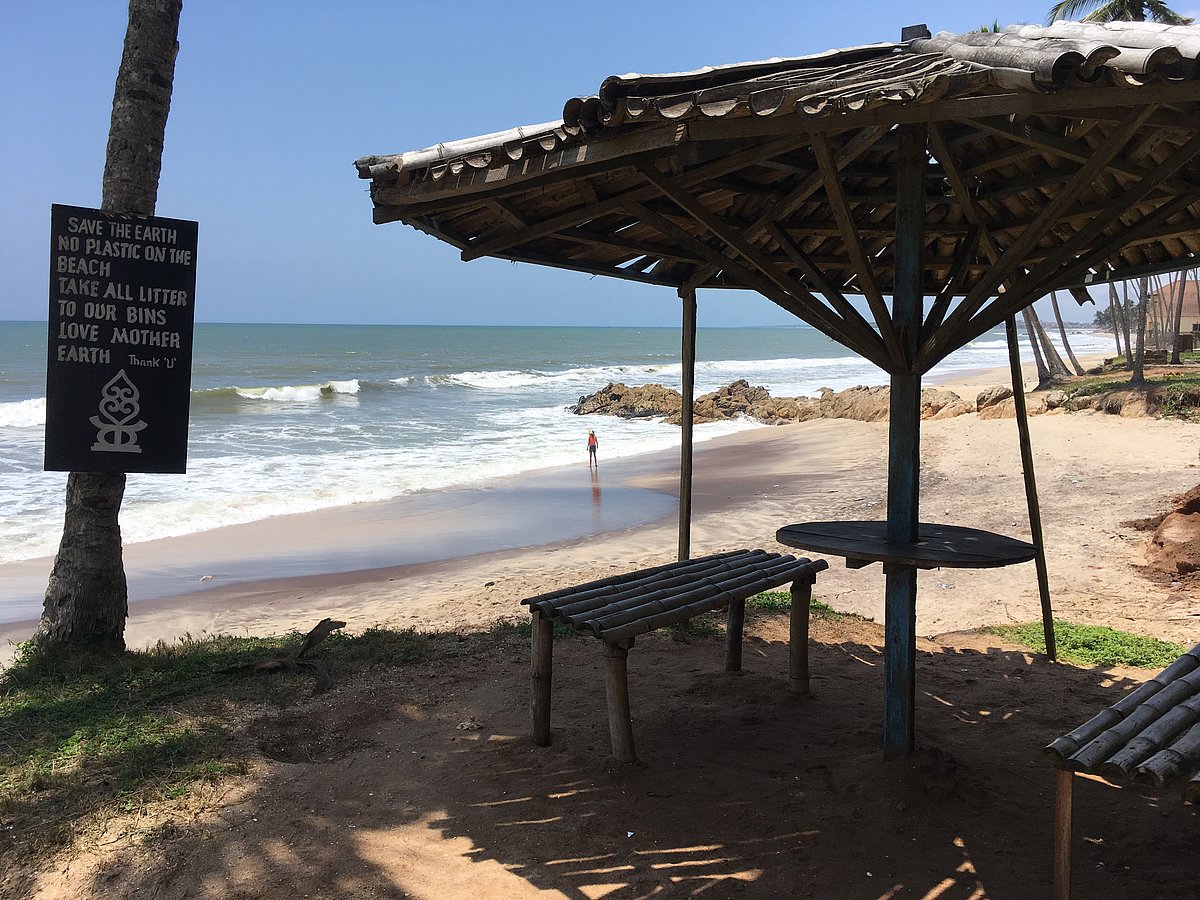Egg-laying season on the Gulf of Guinea.
Ghana's coast is a designated turtle area. Between September and February, sometimes out of season, three different species of turtles (leatherback, green and olive bastard) come ashore to lay eggs. And unfortunately, this is not without danger for the animals. The meat of the turtles is considered cheap and tasty, which is why there are always poachers who seek out the protected animals on the beach and simply take and kill them. And if a female then manages to lay her eggs, about 100 per nest, then the mama has made it, but the children are far from it.
That's just one reason why local protective measures are now in place. At night, patrols are carried out on the beach to look for egg-laying females. And if any are found - or even just the nests, the eggs are collected and taken to a protected, fenced-off section of beach on the territory of the Wakanda resort. There the little ones can grow for two months before they hatch and find their way back to the sea.
There are opportunities to go on night walks with turtle conservationists Kulch, Enoch and Kwame from the Wakanda Resort in Kokrobite, and to accompany them on their nightly patrols. As a marine biologist, I have done this several times. I already told you about my sad, but also happy experiences of those nights on this website.
Since these experiences I have been in regular contact with Kulch. So on October 3, 2020, I received the news that they were able to rescue a large, very old turtle at 2 am. They caught two thieves red-handed. They had already tied up the turtle and were going to take it away. The thieves received a "beating" from Kulch, which will hopefully deter them from doing this again.
With the experiences in September/October 2019, the desire to create a project for the protection of sea turtles arose. To this end, I have contacted the NGO "Global Vision International" based in Kokrobite. She is very interested. In addition, I have asked my long-time friend Anthony, who works as a botanist and algae specialist at the University of Ghana Legon, to interest the marine science department in this. It would be an ideal object for student field work. Kulch, Kwame and Enoch would of course be there as local experts. Awareness campaigns for the people from the neighboring fishing villages are among the first important measures.
Such a project cannot be organized without financial support. We will be dependent on donations. We will report to you when the protection project takes shape.
Here you can see the videos from October 3, 2020.



